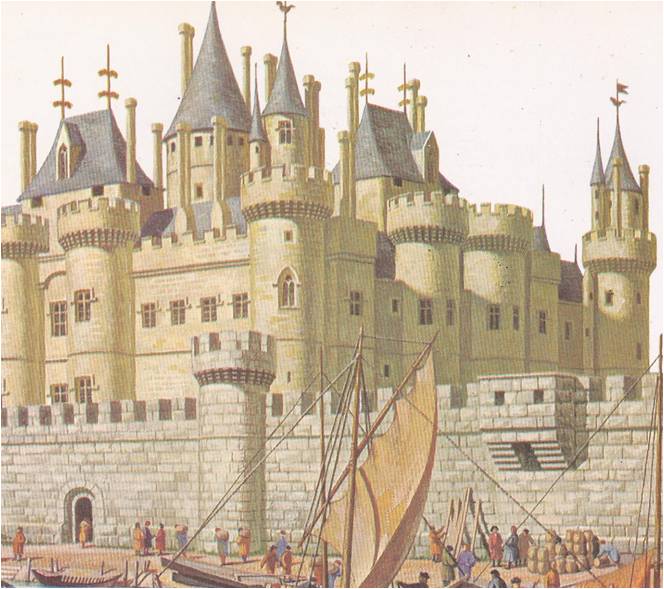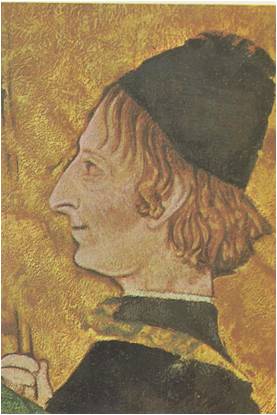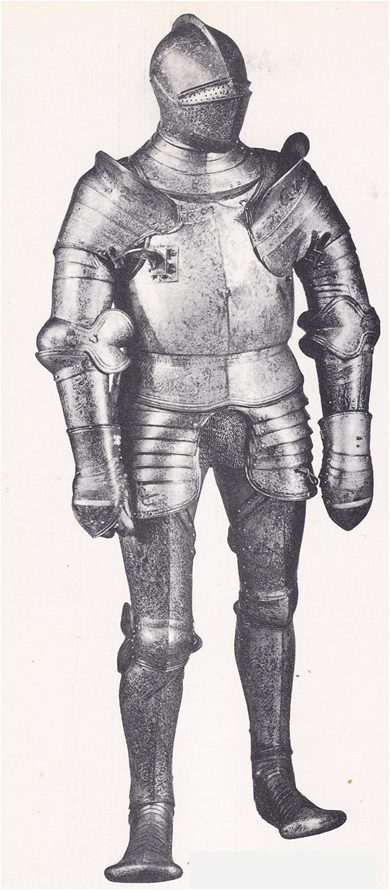Pierre watched the merchant caravan clatter down the narrow dirt road that led through the manor. Pack mules threaded their way to avoid the deep puddles, while the horses strained as they pulled the creaking two wheeled carts. Pierre envied the merchants as well as the sturdy bowmen who guarded the caravan. During his seventeen years Pierre had never been more than a few miles from the manor where he had been born a serf. He was not free to move around as were these merchants who were city folk. Was it true, as Pierre had heard, that a serf …
Read More »Tag Archives: Milan
The Revolution of 1848; 1830-1848
LOUIS PHILIPPE always spoke of himself humbly as the “citizen king.” Although he was dignified, friendly and tried to do things that would make him popular, his government could not satisfy the needs of the people. The reason was that only one out of every thirty Frenchmen had the right to vote. The Chamber of Deputies represented only the nobles and the rich upper crust of the middle class and often it did not even debate questions that were of importance to the great majority of the people. Many Frenchmen did not like the new king. The republicans were opposed …
Read More »The Rise of Napoleon Bonaparte 1796-1802
In March of 1796, a new commander named Napoleon Bonaparte was placed in charge of the French army on the Italian front. The soldiers and officers were amazed when they first saw him. He was short, thin, pale, only twenty-seven years old and spoke French with an Italian accent. Napoleon was not an unknown. He had first come to public attention as the young artillery officer who drove the British fleet from the harbour at Toulon. Later, as a brigadier general, he had successfully defended the Convention from an uprising in Paris. What most people did not know was that …
Read More »The Italian Kings of France 1494 – 1590
In all Europe there was no greater admirer of Italy than Francis I, king of France. Francis practiced Italian manners in his court, built Italian palaces in his parks and kept Italian books in his library. He collected Italian paintings and the artists who painted them. Indeed, the king admired Italy so much that he wanted to conquer it all. Francis was not the first ruler to feel these strong Italian longings. In England, Spain and Germany, kings and princes were busily remodeling their courts, their castles and themselves in the Italian manner. Though the little states of Italy were …
Read More »Gentlemen, Scholars and Princes 1400 – 1507
One day in the fifteenth century, the Turkish potentate of Babylonia decided to send gifts to the greatest ruler in Italy. He consulted his counselors and men who had traveled widely in Europe, asking them who best deserved this honour. They agreed that one Italian court outshone the rest and that his court must surely be the home of Italy’s mightiest sovereign. They did not name Milan, the home of the proud Sforza, nor Florence, the city of the clever Medici. The most magnificent court in Italy, they said, was at Ferrara, the capital of the dukes whose family name …
Read More »Milan, City of Splendour and War 1277-1515
Milan’s most important business street had no displays of velvet cloaks, bright bolts of silk, or cloth-of-gold. It was a dusty, smoky street, made hot by the fires of forges and filled with the din of hammers shaping steel — the Street of the Armourers. Milan made the finest armour in the world. In the Middle Ages, the crusaders came there for chain mail and it was said that entire armies were outfitted in a few days. Later, the fashions of war changed. Knights wore heavy suits of jointed steel plates that covered them from head to toe and elegant …
Read More »Florence in the Golden Age 1469 -1498
Lorenzo de’ Medici was far from handsome. His skin was sallow, his eyes had a short-sighted squint and his nose was flat and wide. His voice was high and thin. Like every man in his family, he had the gout. Yet there was grandeur in everything Lorenzo did. He loved art and books, music and poetry and women. He delighted in sports, hunting and galloping across the brown Tuscan hills. He dealt with ambassadors like a prince, his palace was the gathering-place for the great men of Italy and his city won renown for both its scholars and its carnivals. …
Read More »Florence, First City of the Renaissance 1200-1480
March 25, 1436, was the Feast of the Annunciation and the city of Florence was decked out for a celebration. Banners flew everywhere, ribbons and garlands of flowers decorated the houses and draperies of cloth-of-gold were looped across the shop-fronts. The city bustled with excitement, for on this Annunciation Day the pope was to dedicate the Duomo, the wonderful new Cathedral of Santa Maria del Fiore, then the largest church in the world. At dawn, the people began to fill the streets. They crowded around the high wooden walk that led to the cathedral from the monastery where the pope …
Read More »The Sound of Bells and Trumpets in Europe 1300 – 1600
Bells and trumpets sounded across Europe in the time that men would call the Middle Ages. Knights in glistening armour rode forth to serve God and their kings; life was like a stately procession winding through a landscape marked by castles and cathedrals. Each man knew his place. He was a prince, a knight, a squire, a priest, a craftsman, or a serf. He wore the clothes that belonged to his rank — the armour and family emblems of a nobleman, the robes of a churchman, or the rough wool jerkin of a serf. He lived according to an age-old …
Read More »The New Capital: Constantinople A. D. 306-532
EMPEROR Constantine’s decision to build a new capital for the Roman Empire in the East did not come as a surprise to the people of the empire. Rome had lost much of its influence as the seat of government and emperors avoided the city. They preferred to build castles for themselves in distant provincial cities. Emperor Maximian, for example, had ruled from Milan. Emperor Diocletian had moved to Nicomedia, far to the east in Asia Minor and ruled from there. Constantine had many good reasons for turning eastward in searching for a site for his new capital. Most of the …
Read More »








